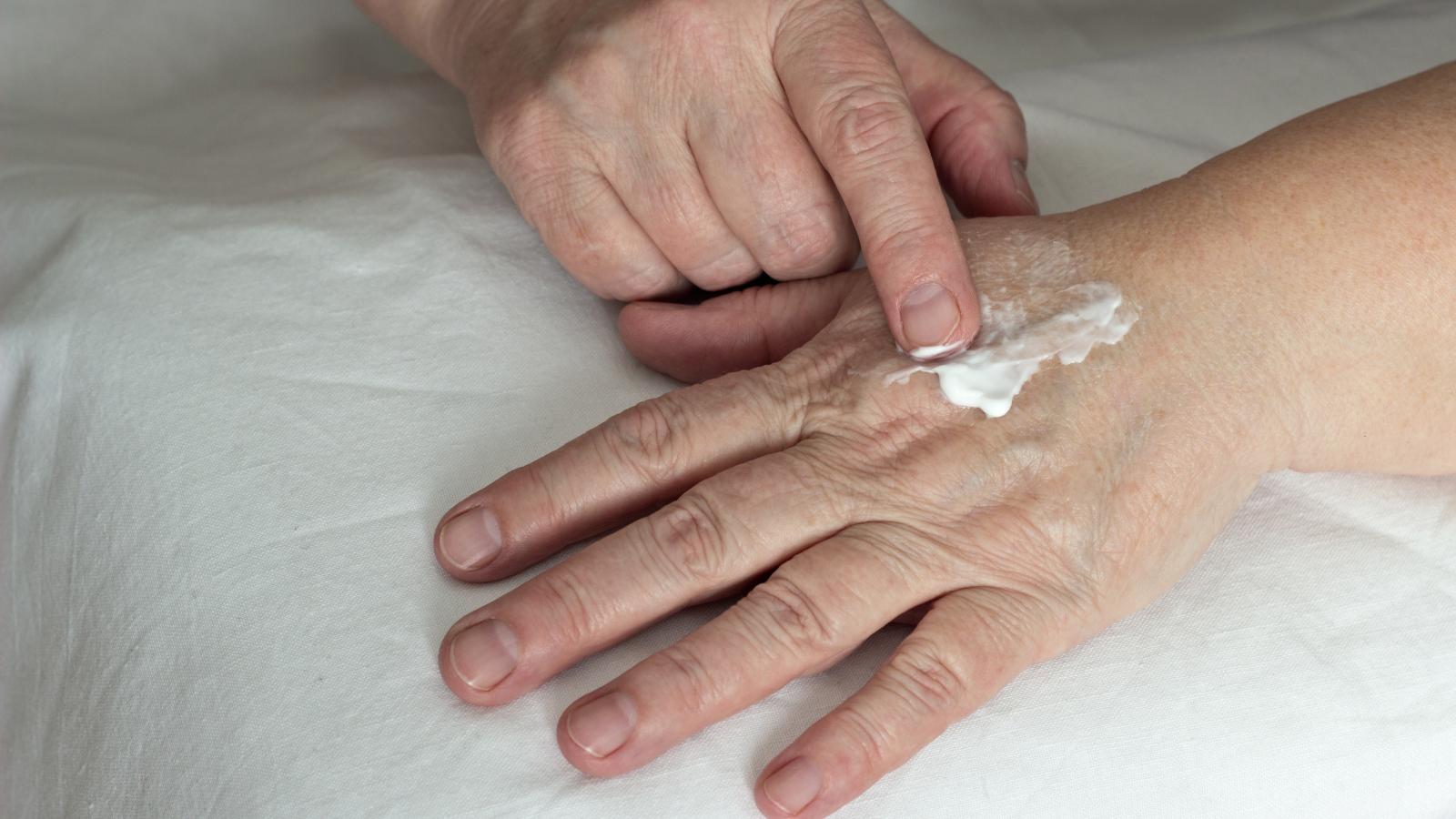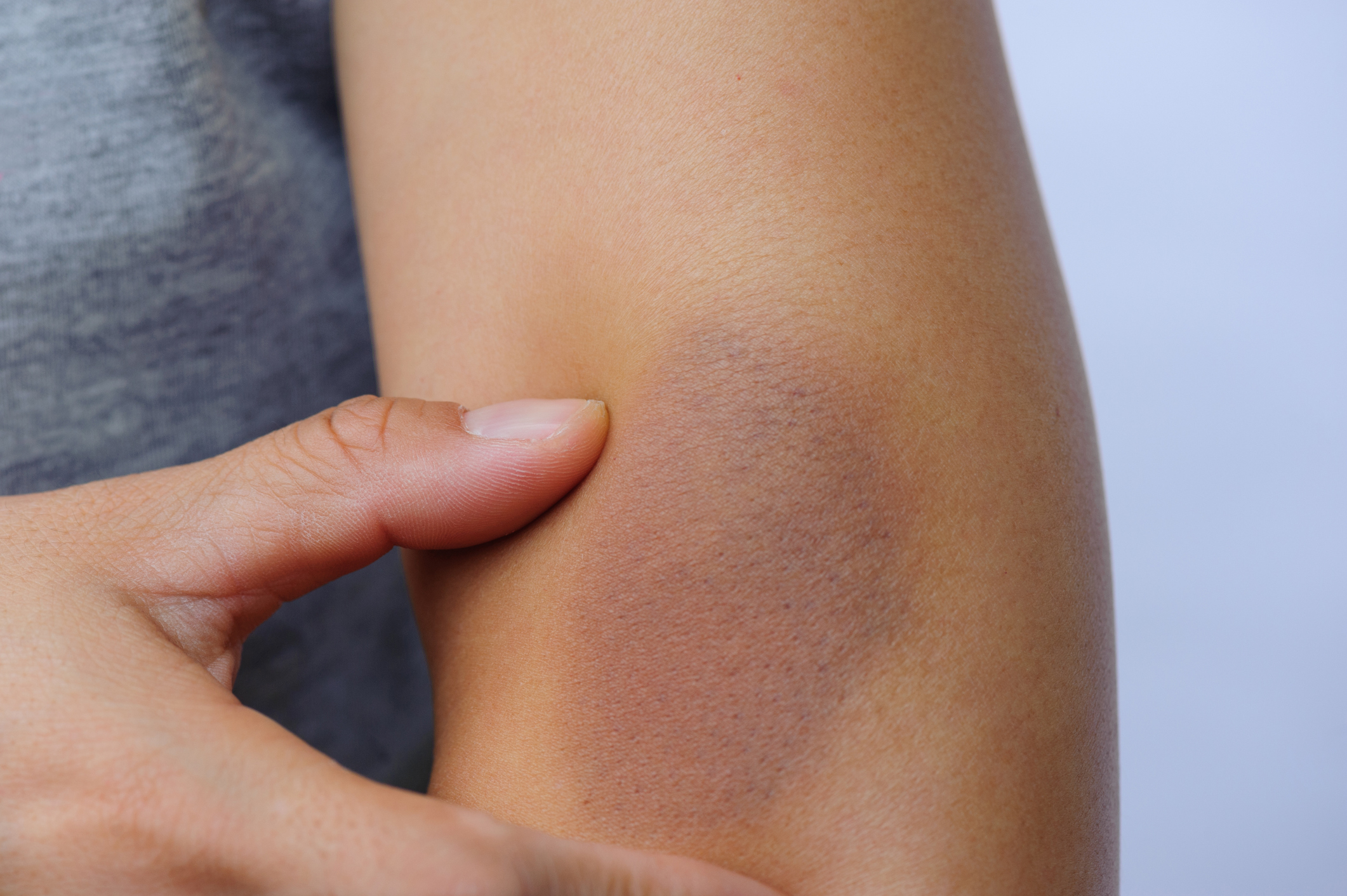Skin and nail changes

Radiotherapy, chemotherapy, hormone therapies, targeted therapies and immunotherapies can cause skin or nail problems. Most skin changes get better after you stop treatment.
What kind of changes can happen?
- Skin may become dry, itchy, flaky or peel
- Skin may become more sensitive to sunlight, so your skin is more likely to burn (photosensitivity)
- Your skin may feel sore
- Nails may become dark, yellow or brittle, or even loosen and fall off. When treatment finishes, these changes usually disappear as new nails will grow back
- You may get a rash. Rashes and itching can be mild or more severe. You may get bumps, pimples or an acne-like rash
- Skin may become darker
Hand-foot syndrome: Hand foot syndrome (palmar-plantar erythrodysesthesia) causes pain, swelling and redness on the palms of your hands and/or the soles of your feet. It can look like sunburn, with the skin blistering and peeling. Read more about hand-foot syndrome
How are skin changes treated?
- Dry skin. Moisturising your skin should help with dry skin conditions
For some changes you may just need to take extra care of your skin to avoid irritating it. Your medical team will advise you about this. You may also be given special creams to help. We also have some skincare tips below
If you are undergoing radiotherapy, it is important to let your medical team know if you are using any skin creams
- Rashes or itching. Ask your nurse or doctor for advice if you develop a rash or itchy skin – there are medicines and creams that can help.
Sometimes a rash or itch could be a sign that you are reacting to a drug, so always let your medical team know straight away if you notice any skin changes - Increased sensitivity to sunlight. Ask your nurse or doctor about what precautions you should take. You may need to stay out of the sun altogether. In general, always protect your skin – seek shade from the sun, cover up, wear a hat and sunglasses and use a suncream with a sun protection factor (SPF) of at least 30 for adults and at least 50 for children
What I can do?
Tips and hints – skin care
- Keep your skin moisturised
- Avoid perfumed products and products containing alcohol
- Protect your skin from cold weather by wrapping up well
- Protect your skin from the sun. Cover up and use a sunscreen or sunblock (SPF 30 or more for adults and 50+ for children). Don’t apply sunscreen before radiation treatment
- Use emollient creams to relieve itchy skin. Do not scratch or rub the treated area as it may become sore
- Gently pat yourself dry with a soft towel after a bath or shower
- Do not wet shave within the area or use shaving lotion or hair removal products. Use an electric razor
- Don’t apply heat or cold to the affected area, such as heating pads, hot water bottles or ice packs. Avoid saunas and steam rooms
- You may find it more comfortable to wear loose, casual clothing made from natural fibres, such as cotton
Changes to your nails
Some cancer drugs can cause your nails to become dry or brittle. They may grow more slowly. Lines may appear across your nails or they may change in shape or colour. On occasion, your nails may become painful and be lost altogether. It’s important to let your nurse know of any changes to your nails when you are having your treatment.
It is important to contact your oncology nurse or specialist if you notice any signs of infection around your nails, such as swelling and pain.
Your nails should start to grow as normal when you finish your treatment.
Tips to care for your nails
- Keep your nails trimmed short. File your nails rather than cutting them. File your nails in one direction, rather than moving the nail file back and forth, to try to avoid splitting your nails more
- Use a nail-strengthening cream to help with dryness and splitting
- If using nail varnish, use a water-based nail varnish. Do not use nail varnish if your nails are split or sore. Don’t use false nails, gel nails or acrylic nails during treatment or when nails are sore or damaged
- Don’t cut your cuticles. Use a cuticle cream
- Wear gloves while doing housework, especially washing-up. Excessive exposure to water can lead to fungal infections of the nail bed
- Wear comfortable shoes that aren’t too tight
- Inform your team if you notice any changes to your nails or if you have any signs of a skin or nail infection
For more information
Phone
1800 200 700



